Episodes
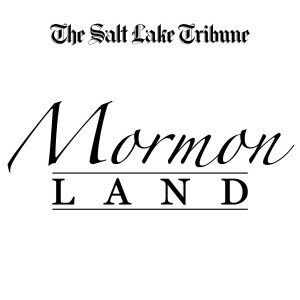
Wednesday Aug 21, 2024
Wednesday Aug 21, 2024
The occasional updates to the online General Handbook of The Church of Jesus Christ of Latter-day Saints are often routine, addressing relatively mundane policies, practices and procedures within the global faith of 17.2 million members.
Not so this week.
The new guidelines spelled out for local lay leaders and their approach to transgender individuals have created a firestorm among LGBTQ members and their allies not seen, perhaps, since the hotly disputed — and now-discarded — exclusion policy of November 2015 against same-sex couples.
The new rules state, for instance, that members who have transitioned in any way — whether surgically, medically or socially — cannot receive a temple recommend, work with children, serve as teachers in their congregations or fill any gender-specific assignments, such as president of the women’s Relief Society.
They cannot stay at most youth camps overnight. And they are urged to use single-occupancy restrooms at church meetinghouses or station a “trusted person” outside to keep others from entering when they use a restroom that aligns with their personal gender identity.
Discussing these new policies and their potential impact on members are religion scholar Taylor Petrey, editor-in-chief of Dialogue: A Journal of Mormon Thought and author of “Tabernacles of Clay: Sexuality and Gender in Modern Mormonism,” and Michael Soto, a transgender and queer man who grew up in the church and now serves as president of Equality Arizona.
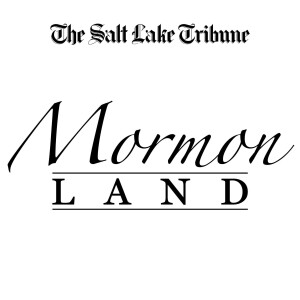
Thursday Aug 15, 2024
Thursday Aug 15, 2024
A member of The Church of Jesus Christ of Latter-day Saints wants to invite her daughter’s friend to join them for their congregation’s annual Halloween trunk-or-treat. But it’s being held in the parking lot of the church, and she worries the parents will think the invitation carries ulterior motives.
Across the street, a couple plan a neighborhood dinner party. They want to throw the invite open to everyone, but there will be alcohol, and they fear offending their teetotaling Latter-day Saint neighbors. In the end, they opt to play it safe and invite only a few (non-Latter-day Saint) couples.
The Salt Lake Tribune heard stories like this and more when, nearly a quarter century ago, it undertook no small task: an in-depth exploration of Utah’s religious divide. And we heard them again when, this year, we solicited feedback from readers about how the dynamic shapes their neighborhoods.
On this week’s show, Latter-day Saint LaShawn Williams, a licensed clinical social worker with a doctorate in education, and Bob Goldberg, a U.S. historian, member of Utah’s Jewish community and former director of the Tanner Humanities Center at the University of Utah, discuss this “unspoken divide.”
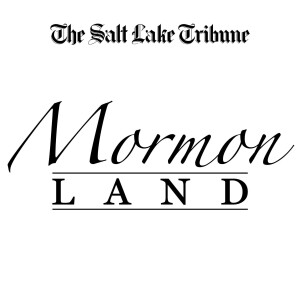
Wednesday Aug 07, 2024
Wednesday Aug 07, 2024
Religion, in general, has prompted believers to have a more positive view of their bodies, and Mormonism specifically teaches that Heavenly Parents are embodied, that humans are created in their divine image, and that the body is a temple.
Why, then, do some members of The Church of Jesus Christ of Latter-day Saints struggle with their body image? Why do many turn to cosmetic surgery to “improve” their bodies?
Two researchers from Brigham Young University have just completed what they say is the largest study ever done of how Latter-day Saint doctrine and culture may affect body image.
On this week’s show, study co-author Lauren Barnes, a licensed therapist and professor in BYU’s School of Family Life, discuss the findings — and suggestions for improving body image.
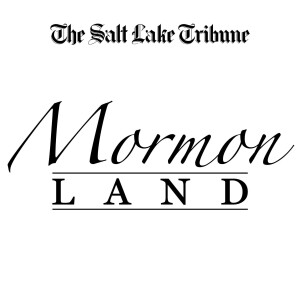
Wednesday Jul 31, 2024
Wednesday Jul 31, 2024
Last August, nearly 20,000 Latter-day Saint young single adults came together to sing, dance, play, pray, run and worship over three weekends. By all accounts, it was a smashing success.
They’re back again this weekend for a three-day festival to celebrate their membership in The Church of Jesus Christ of Latter-day Saints, to strengthen their faith, and to feel a sense of belonging.
And, they say, to try to break a mark recognized by the Guinness World Records for “the most contributions to a birthday card” — for President Russell M. Nelson, who turns 100 in September.
Earlier this month, the Utah-based faith raised the age limit for “young single adults” from 30 to 35, while the term “single adults” now describes unmarried members ages 36 and older.
Here to talk about the coming event and the changing demographics is Sara Sumsion, a young single adult who is working on a master’s degree in marriage and family therapy at Northwestern University, and Richard Ostler, who has served as a bishop over a YSA ward, or congregation.
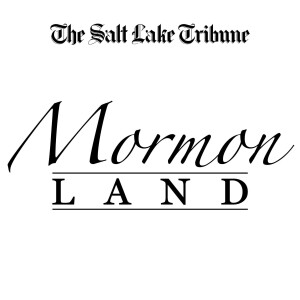
Tuesday Jul 23, 2024
Tuesday Jul 23, 2024
For many Latter-day Saints, church is a place of solace, service and spirituality.
Some folks, though, find their participation in The Church of Jesus Christ of Latter-day Saints to be painful, a source of inner conflict.
These days some members, especially younger ones, feel betrayed to discover that the faith’s history is not as pure as the simplistic narrative they were taught as children. Or they wonder about men called to be prophetic who have said hurtful things about people of color or LGBTQ believers. They challenge the church’s vast wealth and what they see as its ethical failings. They have a hard time seeing any value in organized religion, which leads some to question the existence of God, who seems absent rather than consistently present in their lives.
Tyler Johnson, an oncologist at Stanford who has served as a bishop in a young single adult congregation, has heard and wrestled with all of these issues.
On this week’s show, Johnson, author of “When Church Is Hard,” offers a road map to developing a more nuanced, understanding, empathetic approach to the questions of today.
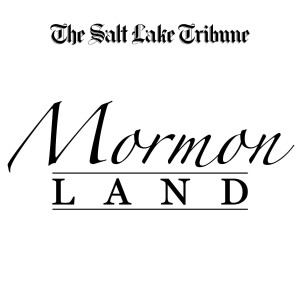
Wednesday Jul 17, 2024
Wednesday Jul 17, 2024
Claudia Bushman was 40 years old, a mother of six and working on an advanced history degree when she, essentially, was volunteered to become the first editor-in-chief of Exponent II, an independent feminist magazine for Latter-day Saint women. That was 1974.
Rachel Rueckert, a 30-something novelist, career woman and the magazine’s current top editor, wasn’t even born then. Despite the age difference, the two share an important passion: giving voice to women in The Church of Jesus Christ of Latter-day Saints.
As the magazine celebrates its 50th anniversary, Bushman and Rueckert discuss their feelings about the magazine, the personal stories it has shared, how it has changed over the decades, what it has accomplished, and why they believe it remains relevant — and crucial — today and will stay that way well the future.
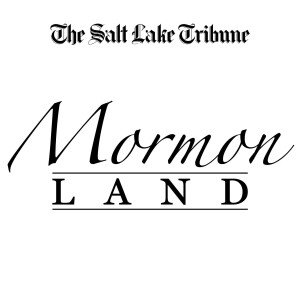
Friday Jul 12, 2024
Friday Jul 12, 2024
Few groups exist in the world like missionaries of The Church of Jesus Christ of Latter-day Saints.
They may be assigned to different countries or speak different languages, but for 18 months to two years, tens of thousands of these mostly young proselytizers share the same strict schedule, routine, identity and purpose: namely, to share the good news of — and seek converts to — their religion.
More than a million have served in the church’s history, so missionary stories are practically as ubiquitous in the 194-year-old global faith as are soaring steeples, crying babies and tiny sacrament cups.
Some stories are inspiring. Some are scary (with odes to devilish humans and even Satan himself). Some are funny. And some are, well, tall on tale and short on truth.
Talking about these narratives, some of which are cataloged at church-owned Brigham Young University, on this week’s show are folklorist Christine Blythe, executive director of the Mormon History Association, and her husband and fellow folklorist, Christopher Blythe, author of “Terrible Revolution: Latter-day Saints and the American Apocalypse.” Together, they host the Latter-day Saint podcast “Angels and Seerstones.”
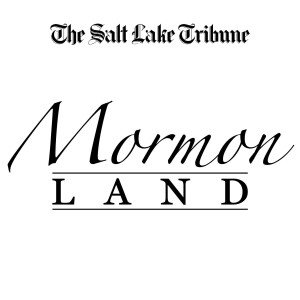
Wednesday Jul 03, 2024
Wednesday Jul 03, 2024
In 2014, The Church of Jesus Christ of Latter-day Saints published an official essay detailing Joseph Smith’s marriages to multiple women. After decades of insisting otherwise, the Community of Christ, formerly the Reorganized Church of Jesus Christ of Latter Day Saints, has since conceded that the faith founder did participate in polygamy. Highly regarded scholarly works have documented Smith had at least 33 wives, and most historians widely accept that the church leader preached — albeit privately — and practiced plural marriage.
So why is this issue gaining increased attention in various Mormon circles and why are so-called polygamy deniers arguing that Smith had but one wife, Emma, while pinning the practice instead on perhaps the Western world’s most famous polygamist, Brigham Young, and his associates?
What does the evidence really show? Why is this debate springing up now? And what do the competing factions stand to win or lose?
Answering those questions and more on this week’s show are Brooke LeFevre, a doctoral candidate at Baylor University who has written about the experiences of 19th-century Latter-day Saint women in plural marriages, and Matthew Bowman, chair of Mormon studies at Claremont Graduate University who penned a recent Salt Lake Tribune column on the topic.
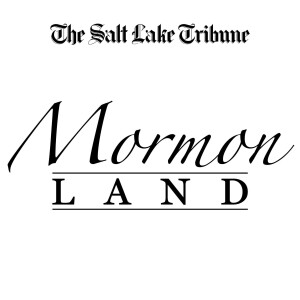
Wednesday Jun 26, 2024
Wednesday Jun 26, 2024
Janette Petersen, a lifelong member of The Church of Jesus Christ of Latter-day Saints, had been attending Sunday services with her wife, Tammy, as faithfully as her job would allow for nearly five years when her membership was withdrawn. Although the letter she received informing her of the decision did not state a reason, Janette told The Tribune her local lay leader, known as a stake president, had pinned it on her marriage.
The church teaches that while being attracted to individuals of the same sex is not a sin, physical intimacy is and that marriage ought to be between a man and a woman.
Ryan and Liz Giles, on the other hand, have been faithful members of two congregations — one in Houston and their current ward in Washington state — since the two women tied the knot in 2021. They have yet to have their membership challenged.
All three women join us today to talk about their church experience as individuals in same-sex marriages, and what they believe is behind the inconsistency playing out when it comes to treatment of couples like them.
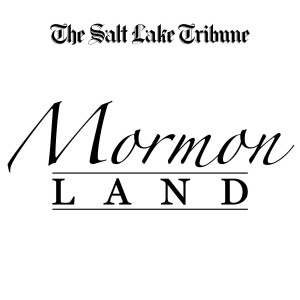
Tuesday Jun 18, 2024
Tuesday Jun 18, 2024
For 115 years, the NAACP, the nation’s oldest civil rights organization, has been advancing the cause of justice for Black Americans. For 111 years, the Anti-Defamation League has been doing much the same for Jewish Americans. And for 104 years, the American Civil Liberties Union has been safeguarding the constitutional rights of everyone in the United States.
So which group is protecting, advocating and advancing the rights of Latter-day Saints?
While The Church of Jesus Christ of Latter-day Saints certainly looks out for its own interests and apologetic groups defend church teachings, no independent organization is dedicated to civil rights for members.
It’s time to change that, argues Public Square Magazine. In a recent staff editorial, the online publication written from a Latter-day Saint perspective, called for the establishment of a civil rights organization to advocate for the rights of members in “political, legal and cultural spaces.”
On this week’s show, Public Square Managing Editor C.D. Cunningham and Associate Editor Brianna Holmes discuss why such a group is needed, how it could operate and whom it could benefit.

More Mormon Land
There's more to "Mormon Land" than just the podcast. You can get access to episode transcripts, Tribune faith stories and more on Patreon.
Sign up for the free weekly Mormon Land newsletter to get the latest happenings about the church from around the world.
And follow Mormon.Land on Instagram.







